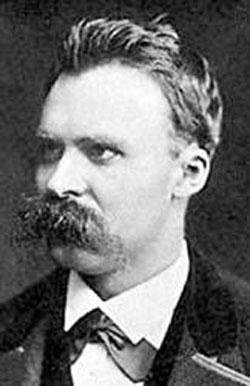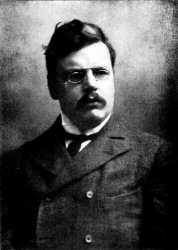28th November 2007
Lessons: Ps 85:8-13; 2 Tim 1:8, 13-14; John 18:33-38
Jesus said (to Pilate), ‘For this I was born, and for this I have come into the world, to bear witness to the truth …’ Pilate said to him: ‘What is truth?’ (Jn 18:37)
 In 1971 John Lennon released a song called ‘Gimme some truth.’ In it he railed against short-sighted, narrow minded, hypocrites in public life. He’s ‘had enough.’ ‘Sick and tired’ of their egocentric posturing, he yearns for something more: ‘All I want is the truth; just gimme some truth.’
In 1971 John Lennon released a song called ‘Gimme some truth.’ In it he railed against short-sighted, narrow minded, hypocrites in public life. He’s ‘had enough.’ ‘Sick and tired’ of their egocentric posturing, he yearns for something more: ‘All I want is the truth; just gimme some truth.’
The urgency with which Lennon craved the truth is symptomatic of deep dissatisfaction with the ‘old values’ which emerged in the 1960s. It was a time when basic Christian beliefs and morality were being questioned. Theologians spoke of the ‘death of God’ and the need for the churches to become more secular. There were passionate debates about the existence of God, equality for women, Aboriginal Land Rights, sexual freedom, workers rights, Apartheid and the Vietnam War. Whatever one made of the ferment in Australian society, the Truth mattered!
How different this was from the present cultural mood! No one gives a damn about the truth! We are preoccupied with our subjective opinions and needs (and those of our various groups). What matters now is not whether convictions and values are true per se but whether they are true for me or you (and for our groups of choice).
In this environment, appeals to truth are met with contempt or suspicion. Sadly, destructive forces often unleashed by groups claiming to ‘have the truth’ – Christianity, Nazism, Communism – make us wary about Grand Narratives. It is now said that every claim that a particular story expresses the Truth must be exposed as an attempt to gain power over others and deny them freedom and dignity!
We are living in a critical period of history when the two great universal traditions which, until now, have shaped Western culture and contributed to the well being of many societies, are under attack., Christianity and Humanism, both claiming to represent the universality of truth and its accessibility to every person irrespective of their particular identities, are collapsing. Few people think that either of them can ‘give us some truth.’
 Whence comes this scepticism? In the late C19th Friedrich Nietzsche asked: ‘What, then, is truth?’ He said that it is merely a collection of images which are really ‘illusions of which one has forgotten that this is what they are; metaphors which are worn out and without sensuous power; coins which have lost their pictures and now matter only as metal, no longer as coins.’ (The Portable Nietzsche. 46-47) In 1986 Jean Baudrillard said that ‘the secret of (pm) theory … is that truth doesn’t exist.’ The critics maintain that, because ‘truth’ is just a name that we give our own limited and partial beliefs, the truth-claims of Christianity and Rationalism must be rejected. There is only truth for me or for us.
Whence comes this scepticism? In the late C19th Friedrich Nietzsche asked: ‘What, then, is truth?’ He said that it is merely a collection of images which are really ‘illusions of which one has forgotten that this is what they are; metaphors which are worn out and without sensuous power; coins which have lost their pictures and now matter only as metal, no longer as coins.’ (The Portable Nietzsche. 46-47) In 1986 Jean Baudrillard said that ‘the secret of (pm) theory … is that truth doesn’t exist.’ The critics maintain that, because ‘truth’ is just a name that we give our own limited and partial beliefs, the truth-claims of Christianity and Rationalism must be rejected. There is only truth for me or for us.
They also say that reason and faith should be replaced by ‘feeling’ as the means by which to ‘experience’ reality. We must make room in life for vitality, emotion and desire. We aren’t just ‘minds’ but vibrant beings who are passionately involved in making our own (personal) decisions and contributing (our diverse gifts) to the well-being of family, party, cause, church, nation and humanity.
This turn to ‘lived experience’ is both positive and negative. It reminds us that our beliefs and commitments are embedded in living traditions. Faith and reason don’t exist in an historical vacuum. The truth can only emerge if we let those rich traditions impinge on our thoughts, feelings and actions. It also reminds us that anybody who is serious about knowing the truth, and are open to it, must be passionately committed to an encounter with those who have gone before.
On the other side, the reaction against faith and reason discourages concern for truth. It is said that, if only we would stop trying to explain the world in the light of Universal faith (Christianity) or Universal reason (Rationalism), we would be free to embrace religious and moral relativism.
We can now pick and choose between ‘truths’ – accepting that ‘what is true for you isn’t necessarily true for me.’ We’ll be suspicious of anybody or group that claims to know ‘the truth,’ critical of their dogmatism and convinced that ‘tolerance’ of the many paths to ‘the truth’ is the key to social harmony. We’ll likely join The Progressive Religious Network!
In view of all these challenges, what sense can be made of John Lennon’s plaintiff cry: ‘Gimme some truth’? Can we embrace the truth (or be embraced by it) in an age which believes in ‘inclusive’ spirituality and is increasingly hostile to ‘exclusivist’ Christianity? Do we get defensive, throw the book at the critics or ignore the challenge? Do we return to a faith based purely on propositions or ‘go with the flow’ and base faith purely on subjective feeling? All are temptations for Reform Movements which have their backs to the wall! How should we respond?
First, we must show up the flaws in the relativist’ argument. If they believe that relativism is true, then not everything is ‘relative’ – only relativism is not relative! If, however, they really believe that ‘all is relative,’ then that also applies to them and we can ignore them. After all, as Socrates and Plato noted a long time ago, relativism is just another opinion!
 Second, we must point out the corrosive effect of ‘fanatical relativism.’ G.K Chesterton once said ‘that people who give up on the truth don’t end up believing in nothing – they’ll believe anything.’ This is the tragedy of relativism! The popularity of new-age spirituality, acceptance of diverse sexual practices and cynicism about religious truth-claims are signs that, when a culture abandons the quest for ‘truth,’ people turn to anything that appeals to their ‘subjective experience’ – to what is ‘true for them.’ The results in people’s lives are often very sad.
Second, we must point out the corrosive effect of ‘fanatical relativism.’ G.K Chesterton once said ‘that people who give up on the truth don’t end up believing in nothing – they’ll believe anything.’ This is the tragedy of relativism! The popularity of new-age spirituality, acceptance of diverse sexual practices and cynicism about religious truth-claims are signs that, when a culture abandons the quest for ‘truth,’ people turn to anything that appeals to their ‘subjective experience’ – to what is ‘true for them.’ The results in people’s lives are often very sad.
This kind of relativism has many forms, including an ‘evangelical’ form, which is only interested in ‘personal experience,’ not theology, creeds or liturgy. But, when sensitivities about people’s diverse spiritual experience lead some UCA ministers to forbid use of the text about Jesus being ‘the way, the truth and the life,’ the real seriousness of our situation in Church and the urgency to recover a biblical sense of ‘the Truth’ are laid bare.
It isn’t necessarily a bad thing to be shocked into action. Until recently in the West the Churches have not had to give an account of the truth of the Gospel. The common view that faith in God and ‘Christian principles’ are all that is needed to be ‘a good Christian’ meant that the question of the truth of God’s presence in Christ was ignored. Now that that truth is being strongly challenged in the public domain the Church must respond.
Our text gives us confidence to believe in ‘the Truth’ – without having to abandon reason, sink into despair (Lennon), escape into ourselves or become fanatics. If we come to the text, as we would come to any story or subject that arouses our curiosity – in a spirit of trust and openness – then we open ourselves to being encountered by the One who embodies the truth of God’s love for humanity and our responsibility before God. …
Our familiarity with the text shouldn’t blind us to its strangeness and audacity! Jn announces that the ‘truth’ about God’s purpose and human destiny is to be found – not in a timeless ideal or an intellectual theory – but in the particular person, Jesus Christ. In this crucified man, whom God raised from the dead, and in whose words-and-deeds the very Being-and-Action of God was uniquely embodied, is ‘Truth Incarnate.’ For Jesus not only reveals the truth; he is at the same time the bearer of that truth.
Therefore, when we are encountered by the Holy Spirit and summoned to ‘live in relation to him who is the truth,’ we bear witness before the world that he is the One True Person who sets us free to glorify the Father in the midst of, and for the sake of, the world. … In the text we find a radically new definition of ‘truth.’ Where Jews found truth in study of the law, and Greeks found it in studying the nature of things (logos), Christians found it in the Person of Jesus.
Naturally, this causes offence in a relativistic age where everyone does what is right in their own eyes (Judges 21:25) – not least in a Church which is embarrassed by the Christocentric message of Scripture. It is particularly shocking to an age which is so suspicious of truth-claims – equating them with hatred, bigotry, oppression and intolerance. Sadly, that has happened in the name of the Church and Western civilization. But it isn’t what is meant here – or in the rest of Scripture!
 It is not accidental that Pilate asks ‘What is truth?’ at the very moment when the One who had embodied in his ministry the mercy and goodness of God and the fullness of humanity, is being tried, flogged and crucified as if he were the enemy of God and humanity. … The truth to which Jesus bears witness and which he embodies, is the reality of God’s costly, self-giving love for all. It doesn’t impose itself by violence. It isn’t bigoted or fanatical. It is the power of God’s grace which overcomes sin and triumphs over evil. It is a word of hope for the despondent, a word of faith for the sceptical and a word of love for the unloved and unloving.
It is not accidental that Pilate asks ‘What is truth?’ at the very moment when the One who had embodied in his ministry the mercy and goodness of God and the fullness of humanity, is being tried, flogged and crucified as if he were the enemy of God and humanity. … The truth to which Jesus bears witness and which he embodies, is the reality of God’s costly, self-giving love for all. It doesn’t impose itself by violence. It isn’t bigoted or fanatical. It is the power of God’s grace which overcomes sin and triumphs over evil. It is a word of hope for the despondent, a word of faith for the sceptical and a word of love for the unloved and unloving.
No other tradition (as a matter of fact) believes that God has so entered into the world in love for his flawed creatures. … believes that the justice and compassion of God have been uniquely embodied in such a person; … believes that God has suffered and died and was raised to life so that we might be fully reconciled to God and to each other and so live in hope. … This is not just another ‘relative’ approach to ‘the truth’! …
Of course, people will still say that they don’t believe that what Christians say is ‘true.’ But that is more honest than pretending that all perspectives are the same or – what amounts to the same thing – that it doesn’t matter what you believe so long as you live by what is ‘true for you.’
It does matter whether or not God has defeated sin, evil and death in Christ as a sign of hope for everybody and the whole creation. It does matter whether flawed people, like you and me, can be reconciled to God and our neighbours. It does matter whether God is gracious-and-righteous or untrustworthy, distant or malevolent. It does matter whether the world is a place to delight in or a place to fear and despise.
In Christian Belief in a Postmodern World Diogenes Allen responds to those who say there’s no need to go to Church if they don’t have religious needs: ‘It’s not a question of needs. I go to Church because Christianity is true!’ How many of us would give such an answer? How many of us would describe what God has done in Christ in terms of the Splendour of Truth? We are more likely to say how our spiritual needs are met.
We shouldn’t let ourselves be intimidated by ‘fanatical relativists’ from speaking about the truth embodied in Christ’s self-giving love for the world. And while we can’t prove it by referring to supposedly neutral standards for truth, we can invite others to believe that the ‘truth’ about God and human existence can be known when we let what has happened in Christ encounter us. We must let Christ be the measure of the Truth.
When, by the power of the Holy Spirit, we ‘truly’ believe that Jesus Christ embodies ‘the truth’ of God’s reconciling grace for flawed people, like you and me, then the shrill voices of ‘fanatical relativism’ will be silenced for us. Nevertheless, we must respond to the power they have to destroy the lives of those who have been indoctrinated to be suspicious and contemptuous of ‘the Truth’ and have lost hope.
If the ACC can contribute to this task in some small, fragile way it will perform a most valuable service to the UCA and, more importantly, to our nation. Bishop Lesslie Newbigin puts it well:
‘when the Church affirms the Gospel as public truth it is challenging the whole of society to wake out of the nightmare of subjectivism and relativism, to escape from the captivity of the self turned in upon itself, and to accept the calling which is addressed to every human being to seek, acknowledge and proclaim the truth’ (Truth to Tell, 13)
Let us, therefore, gladly commit ourselves to the Splendour of Truth given to us and all humanity in Jesus Christ our incarnate, crucified, risen and ascended Lord! To him be all glory and honour and blessing and power now and forever. Amen
Rev Dr Max Champion
ACC Public Rally at Macedonian Evangelical Uniting Church, Preston on 16 November 2007


Leave a comment